UN INT Intro Text w/ Centered Large Responsive Image - *Important Note* You must UNLINK this shared library component before making page-specific customizations.
UN MIS Responsive cYouTube Video - *Important Note* You must UNLINK this shared library component before making page-specific customizations.
Were monkeys forced to pick your coconuts?
Many kind people choose coconut milk instead of cow’s milk because they don’t want to support cruelty to animals. But a disturbing PETA investigation reveals that terrified young monkeys in Thailand are kept chained, abusively trained, and forced to climb trees to pick coconuts as fast as possible. These coconuts are used to make coconut milk and other products.
Chained and Driven Insane
In 2019, PETA investigators visited eight farms where monkeys are forced to pick coconuts—including those for Thailand’s major coconut milk producers, Chaokoh—as well as several monkey-training facilities and a coconut-picking competition. At each one, they documented that these sensitive animals were abused and exploited. Since being alerted to this situation nearly a year ago, Chaokoh and the Thai government have failed to take meaningful action to end the use of forced monkey labor and instead are using a misleading and inadequate audit system to lie to companies and consumers about the extent of forced monkey labor in their coconut supply chain.
After being alerted to the situation, Costco, Wegmans, Super King Markets, and Cost Plus World Market made the decision to stop selling the Chaokoh brand of coconut milk, and Ahold Delhaize and its family of brands (including Giant Food, Food Lion, Stop & Shop, and Hannaford in the U.S. as well as Albert Heijn in the Netherlands), some of which had been selling Chaokoh brand coconut milk, have pledged to stop knowingly stocking and selling any products obtained from suppliers that use monkey labor.
Walgreens Boots Alliance has also committed to not stocking Chaokoh and not knowingly selling any own-brand coconut food and drink products of Thai origin in their 9,027 Walgreens and 250 Duane Reade stores in the U.S. and 2,758 Boots stores in the U.K. and Thailand. In the U.K., Morrisons has also suspended its supply of Chaokoh products pending an investigation; Sainsbury's, Asda, and Tesco have stopped selling Chaokoh; and Ocado, Waitrose, and Co-op have committed to never knowingly stocking any products from suppliers that use monkey labor. The German supermarket tegut has also stopped selling Chaokoh.
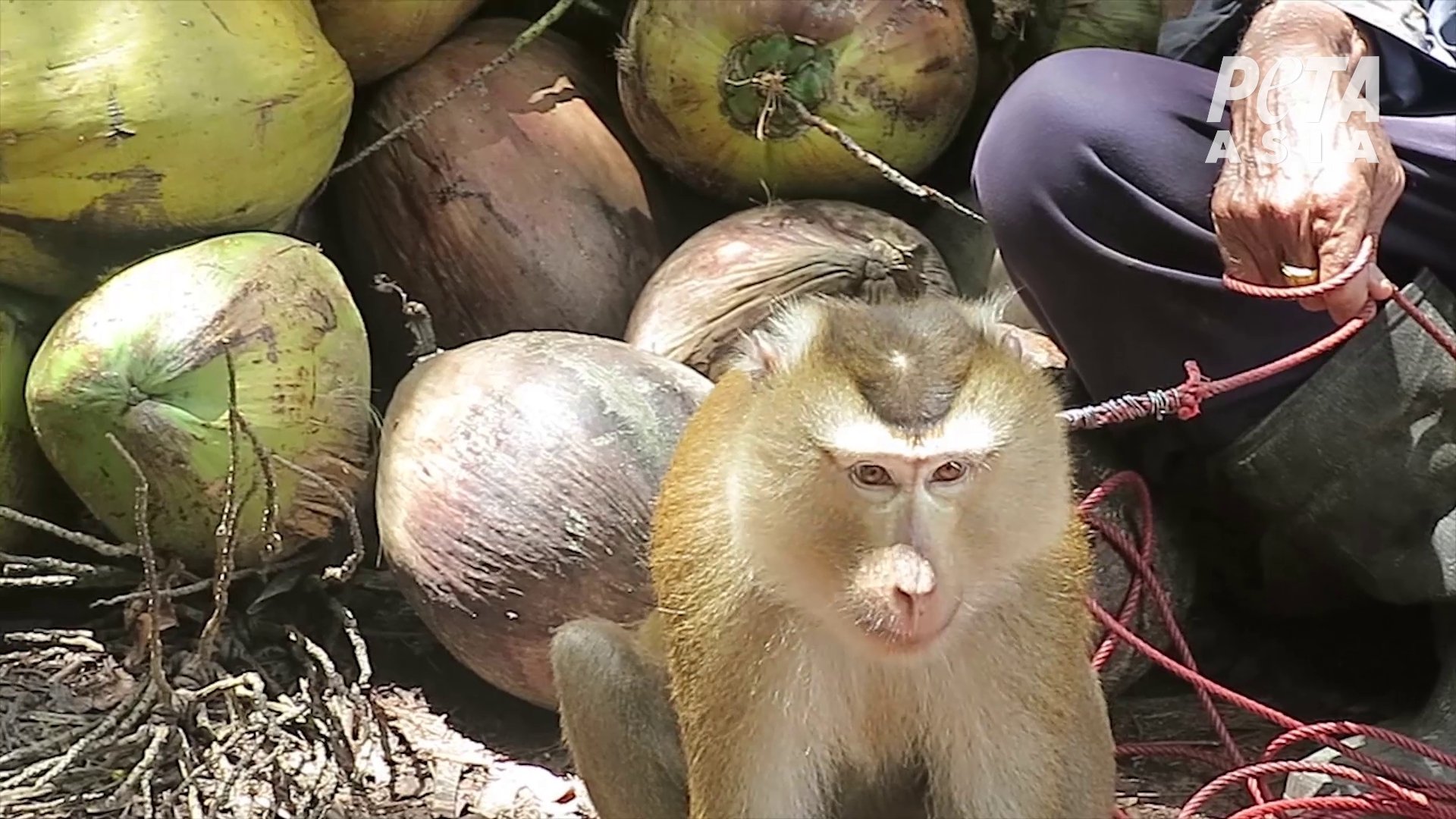
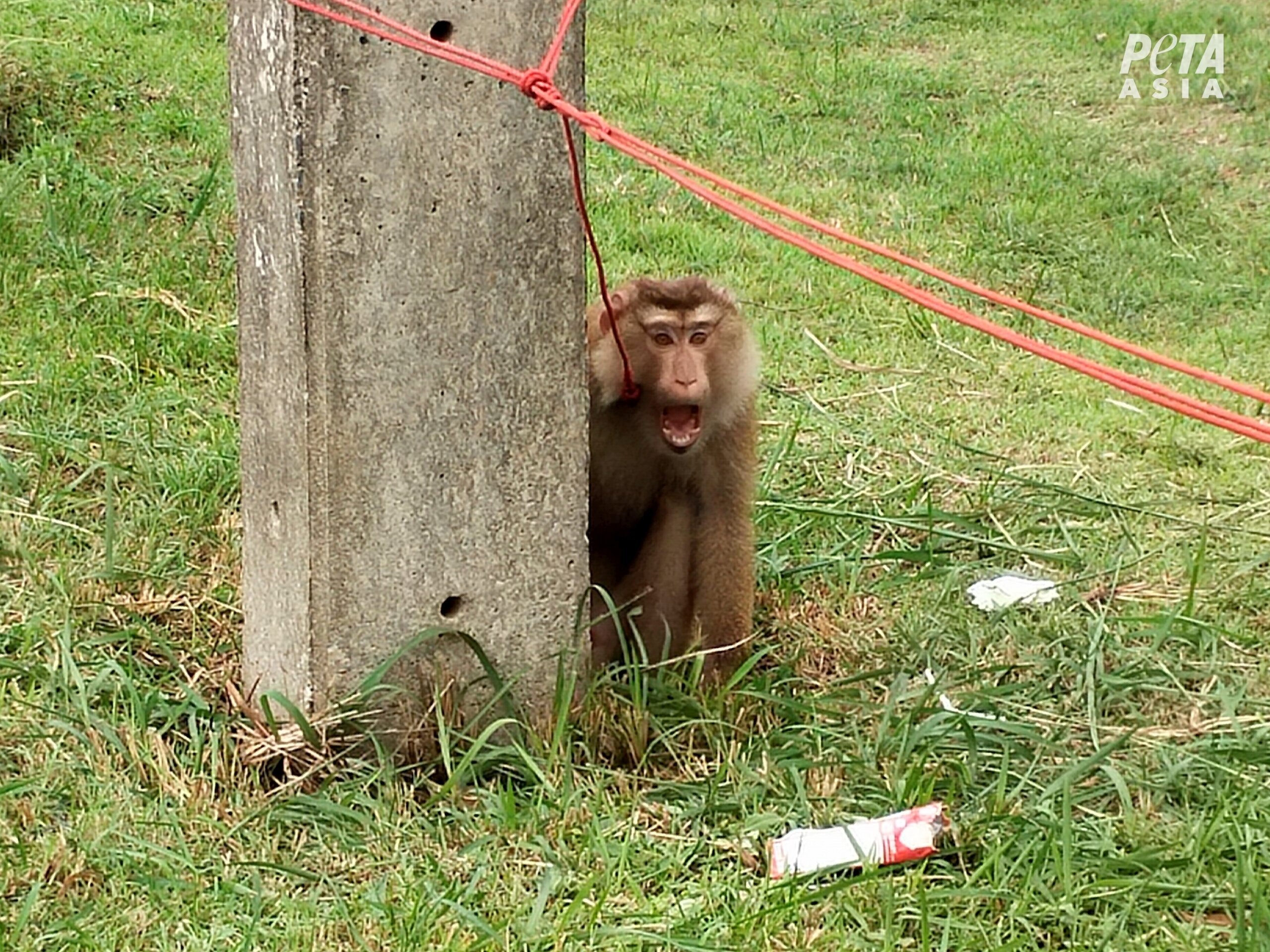
Following PETA Asia's investigation, more than 33,000 stores will no longer purchase this brand's products and the majority will no longer buy any coconut products derived from Thailand monkey labor.
Reportedly, many monkeys are illegally abducted from their families and homes when they’re just babies. They’re fitted with rigid metal collars and kept chained or tethered for extended periods.
Denied the freedom to move around, socialize with others, or do anything else that is important to them, these intelligent animals slowly lose their minds. Driven to desperation, they pace and circle endlessly on the barren, trash-strewn patches of dirt where they’re chained.
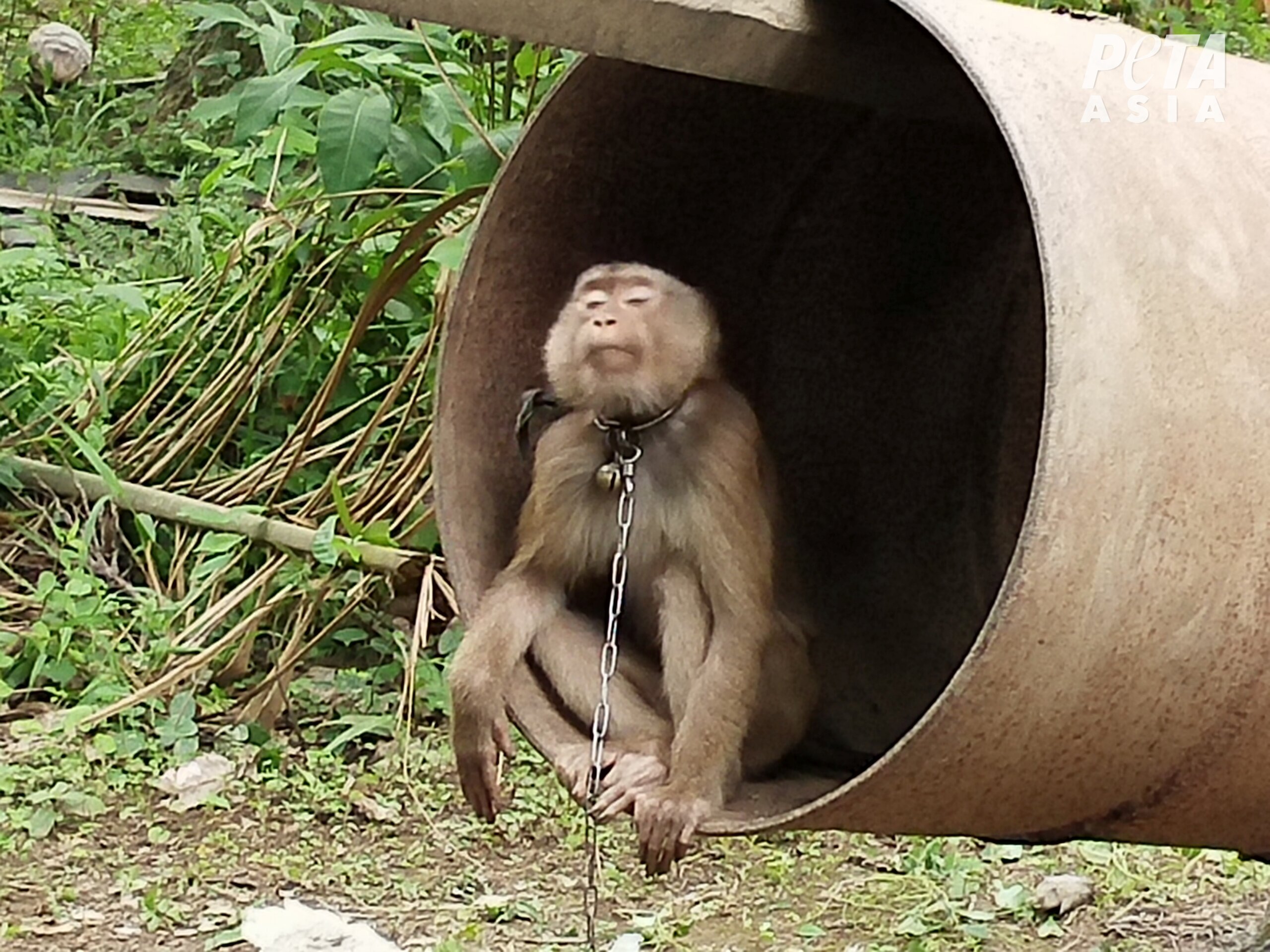
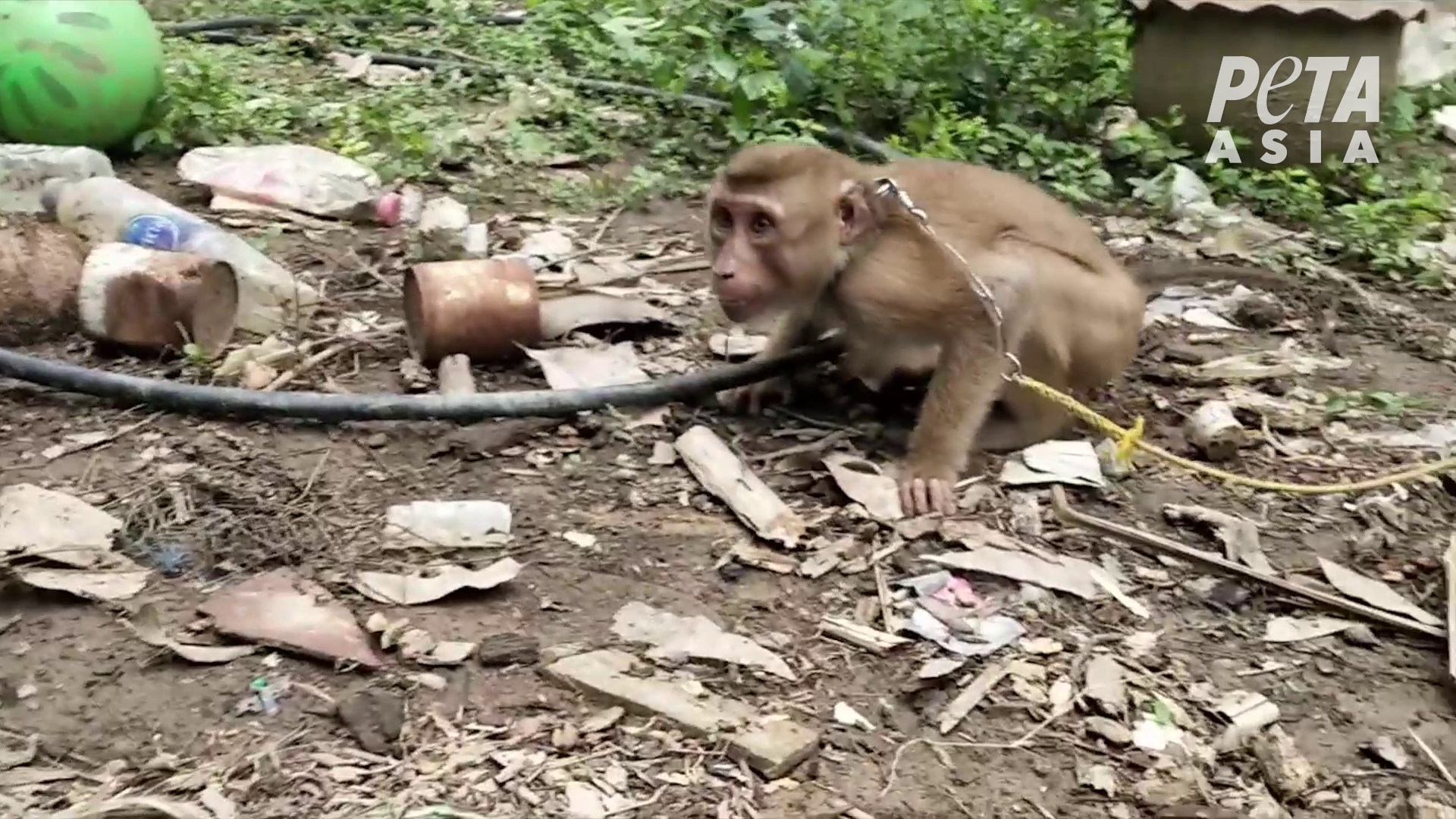
Cruelly Trained and Teeth Pulled Out
The terrified young monkeys are forced to perform frustrating and difficult tasks, such as twisting heavy coconuts until they fall off the trees from a great height. An investigator learned that if monkeys try to defend themselves, their canine teeth may be pulled. To earn more money off these animals, some trainers also force them to participate in circus-style shows in which they entertain paying visitors by riding bicycles, shooting basketballs, and performing other confusing and demeaning tricks.
An investigator saw monkeys being transported in cramped cages that were barely large enough for them to turn around in and others left in locked cages in the back of a pickup truck, with no shelter from the driving rain. One monkey was seen frantically shaking the cage bars in a vain attempt to escape.
Tethered by the neck with a metal collar, the monkeys are forced to climb up and down trees and collect coconuts.
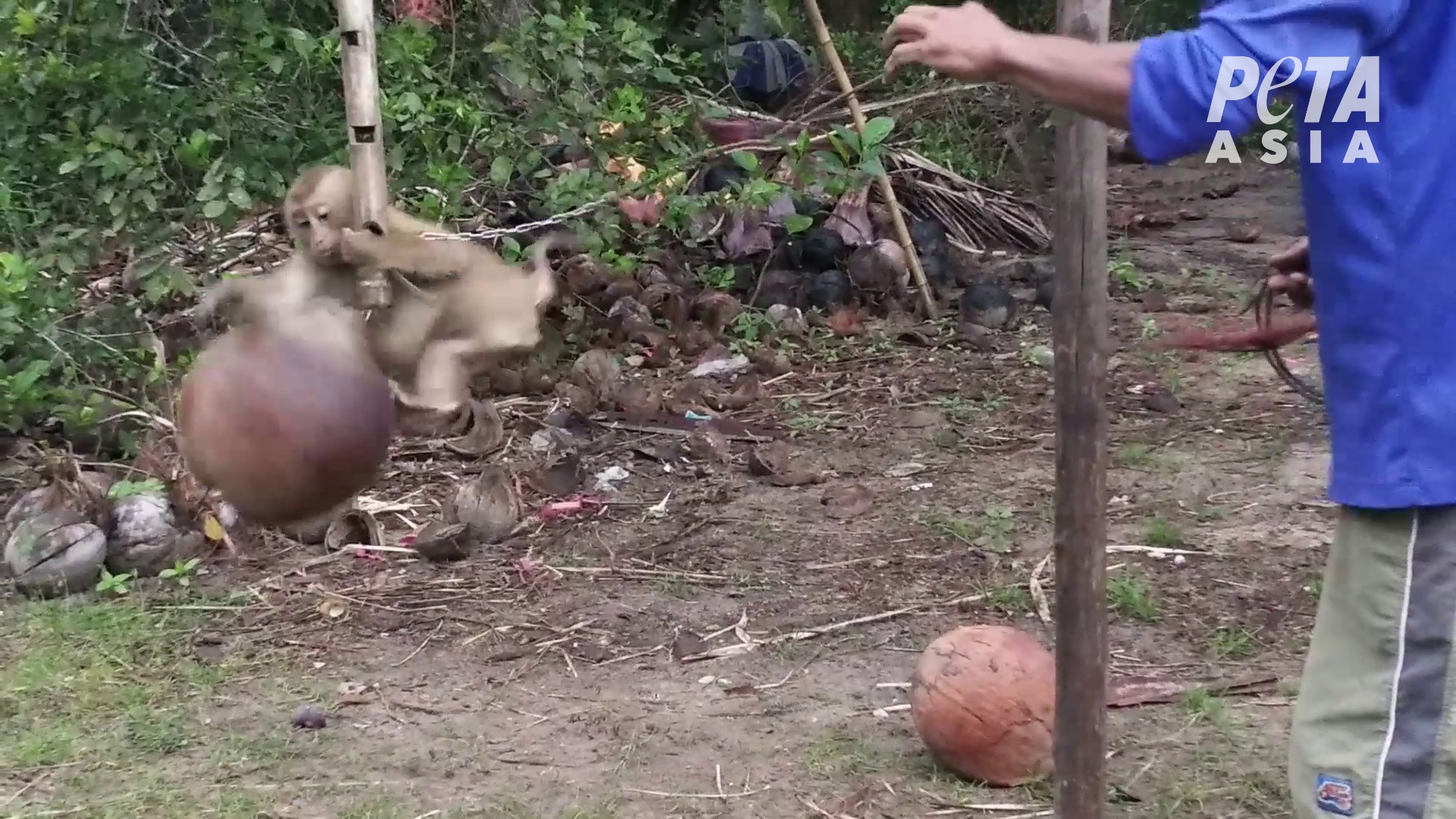
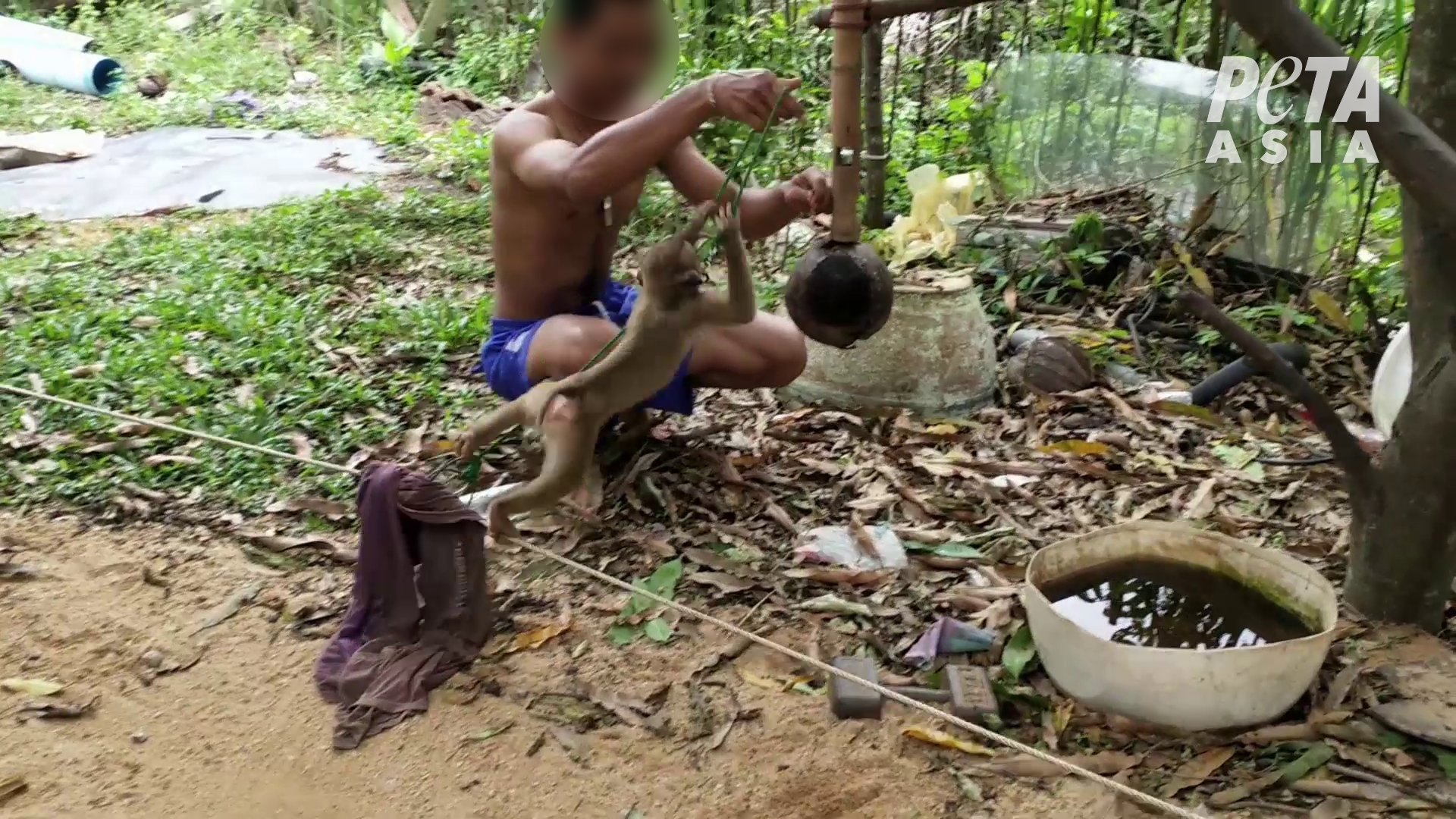
No Tropical Paradise
Major brands that sell products made from coconut milk may try to pretend that monkeys aren't being used by relying on intermediaries to give that impression, but one industry insider admitted that some farmers brazenly lie about using them. And not all monkeys live on farms, so inspections are almost pointless.
A PETA investigator was told by a worker at one farm that it supplied coconuts to Chaokoh, which are sold in major stores around the world. So if you purchase Chaokoh or coconut milk products from Thailand, you may inadvertently be supporting this cruelty.
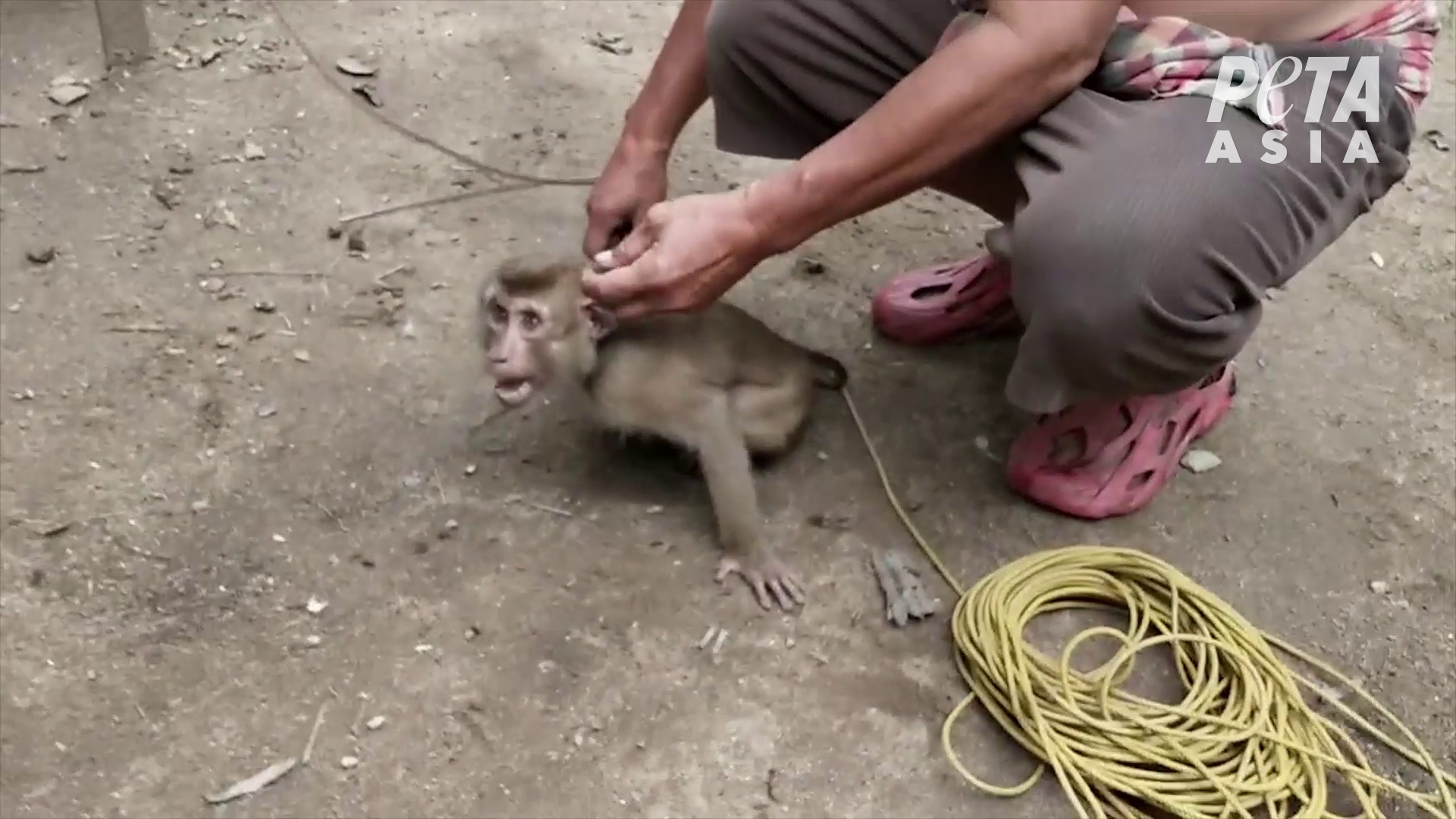
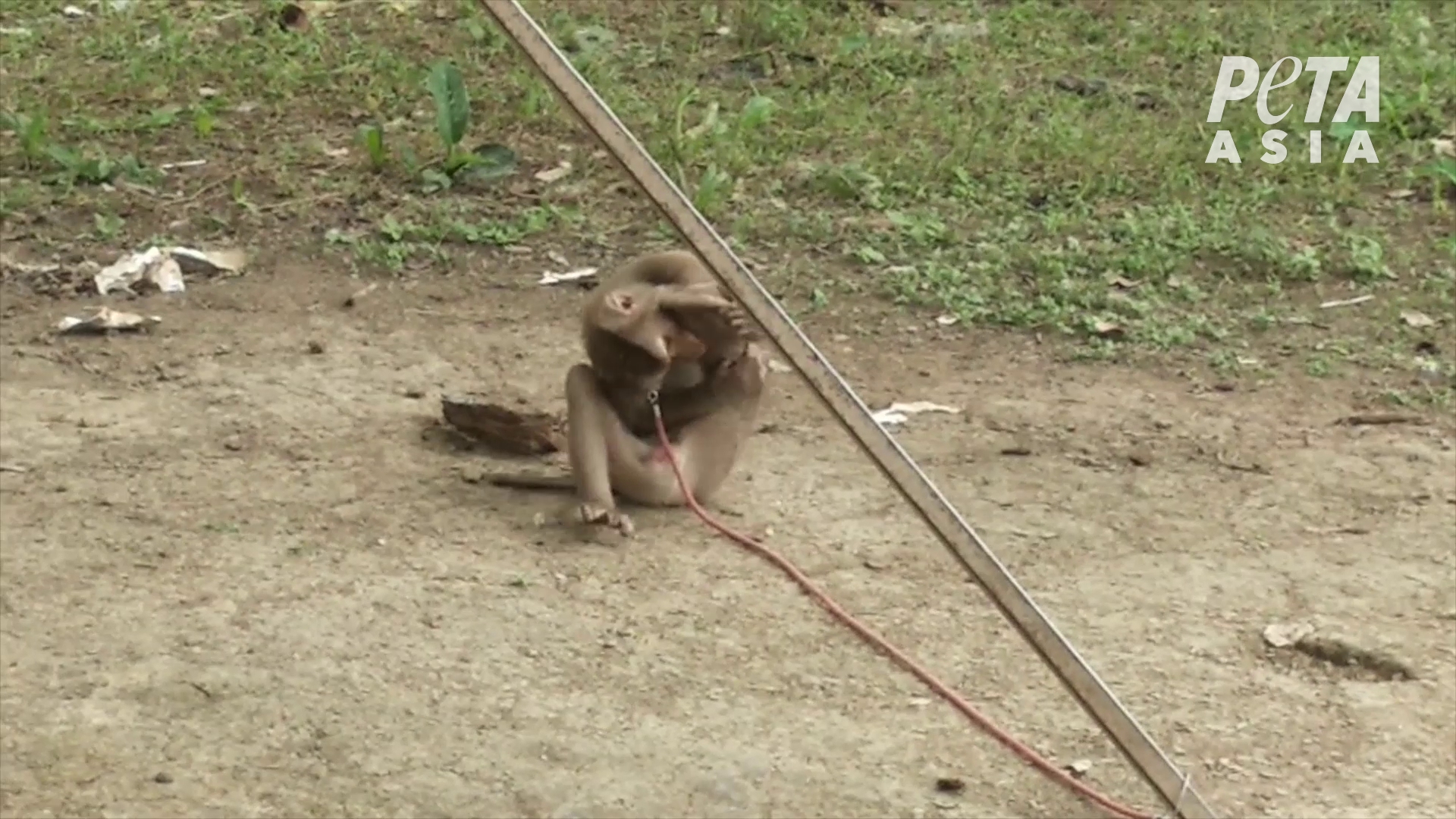
Other coconut-growing regions—including Brazil, Colombia, and Hawaii—harvest coconuts using humane methods such as tractor-mounted hydraulic elevators, willing human tree-climbers, rope or platform systems, or ladders, or they plant dwarf coconut trees. Studies have shown that these methods are superior to using monkeys, who can’t distinguish between ripe and unripe fruit, and the ripe coconuts get bruised when the monkeys drop them to the ground. Coconut water typically comes from coconuts grown on dwarf trees, including the Nam Hom variety, and harvesting them doesn't involve monkey labor—but this isn't always the case. PETA has confirmed that Harmless Harvest is among the companies that don't use monkey labor for coconut water.
PETA maintains a list of brands that don't use monkey labor and invites Thailand-based coconut companies to provide evidence that they don't use forced monkey labor.
Take Action
It's no secret that monkey labor is widespread in Thailand, and the coconut industry's willful ignorance of the sourcing of coconuts is simply self-serving. The monkeys' miserable existence is made so much worse by the government's failure to hold the industry accountable. Several thousand monkeys are still being chained, caged, and abused, since there are practically no regulations.
Please, make sure that your coconut products don’t come from any companies that exploit monkeys. Sign below to urge Chaokoh to stop supporting this cruel industry by obtaining their coconuts from companies that don’t use monkeys.
Personalized letters always work best. Feel free to use the sample letter provided, but keep in mind that your letter will carry more weight if you write your own customized message and subject line.